|
Presentation "Patrimoines, hauts lieux et lieux de mémoire dans les régimes de visibilité de Pyongyang" (Cultural heritage, landmarks and lieux de mémoire in the regimes of visibility of Pyongyang) at the international conference: "Capitals of the Korean World', Paris, EHESS, 12-13 September 2013. I am going to make a presentation at the following conference "Capital cities of the Korean world", Paris, EHESS, 13 september 2013 : 14h00 - 14h30 : Présentation 1 - Benjamin Joinau (EHESS) Patrimoines et lieux de mémoire à Pyongyang dans les « régimes de visibilité » de la capitale I will develop on the "regimes of visibility" (visibility, invisibility, non-visibility and distanciation in urban context) in the case of Pyongyang, especially concerning the landmarks and "lieux de mémoire" as they are shown (or not) to tourists. This study follows and complements my former paper "Topo-mythanalysis of Pyongyang". It is part of a larger project intending to study the question of distance and regimes of visibility in cities, with a comparison between Seoul and Pyongyang. I have been invited Wednesday 17th July in the Blue House to deliver a short speech in front of President Park Geun-hye and ministers during the meeting of the new Korean Comitee for the Promotion of Tourism (관광진흥확대회), under the Ministry of Culture and Tourism. I am trying to advocate the importance of gastronomy and food in the field of culture. Here is the text in Korean.
한국음식의 관광매력 극대화 방안 프랑스 파리 EHESS 대학원 연구원 (한국학, 문화 인류학) Arirang TV <Tasty Trail with Benjamin> MC 음식문화 전문가 제가 한사람의 외국인, 한국음식을 먹으면 뭣을 먹는다고 생각하십니까 ? 반정도는 음식을 먹지만 나머지50 %는 무형 문화적 제품을 소비하는것입니다. 이나머지 50 %에 들어가는것들은 사람 따라서 따릅니다 : 한국 문화적 아이템, 건강에 도움이 되는 음식, 한류 관련 부산물, 일상생활의 체험, 꿈, 환상… 이다양한 50%는 한국 음식관광확대에 소중한 요소입니다. 음식은 일상 생활, 생애 필수품, 사회적 관계, 상징적 문화가 만나는 사거리에 있기때문에 무시할 수 없는 관광요소입니다. 이무형적 50% 부분때문에 한국음식은 산업적으로만 개발하려는 노력 하면 (예 : 비비고 페스트 푸드, 냉동 떡볶이, 등) 반정도 실패할 수 밖에 없습니다. 하지만 이 음식 문화와 음식관광을 잘 개발 하면 관광객의 만족감과 관점을 적극적으로 개선 할 수 있습니다. 그러나 이 무형50%를 잘 이해해야됩니다. 관광객들은 개개인이 다양하고 각자 문화배경도 다르기 때문에 음식의 매력은 다양하게 개발해야 됩니다. 하나의 정책으로 진행 하면 관광객의 일부를 잃어버립니다. 예를 들면 유럽사람한테는 음식으로 건강을 유지 할 수 있다는 논의는 설득력이 적습니다. 한국음식의 다양성을 증진 하면 여러 관광객을 유혹 하면서 한국음식에 대한 좋은 인식을 받을 수 있습니다. 과연 음식은 누구나 하루에3번 섭취 하지만 문명적인점도 강합니다 : 음식은 문화수준의 지표로 문화가 깊고 세련된나라의 정체성을 표현합니다. 게다가 음식은 맛있어야 되지만 미각의 일부는 후천적으로 습득한 양식이기 때문에 맛으로만 모든 잛은 시간 방문하는 관광객을 유혹 할 수 없습니다. 그래서 일품 요리 몇가지에만 집중하는것은 (불고기, 떡볶이, 비빔밥, 등) 오류인것같습니다. 먹는방식 (상차림), 다양성과 복합적 매력을 보여주는 한상차림 문화, 한국음식 정체성의 기초인 <장> (발효음식), 등, 여러가지 아이템을 알맞는 스토리 텔링으로 개발 하면 좋습니다. 그리고 해외 관광객들은 보통 여행 하는 동안 그나라의 음식만 먹는것이 아니라 유명한 새계음식도 시식합니다. 홍콩이나 동경을 구경하는 외국인들이 스시나 딤섬식당에 가는게 아니라 아니라 유명한 프랑스나 이테리 쉐프의 레스토랑을 다른 문화 유적지를 방문 하듯이 다니기도 합니다. 서울 음식무대가 발달했지만 국제 수준으로 보면 아직도 부족하다고 봅니다. 여러 이유중에서 교육, 재료, 법에 관련 이유가 있습니다. 내국 소비자의 의식과 기대도 높이고 국제 음식문화까지 지원 하면서 법으로 외국 고급음식점들이 잘 개발 될 수 있는 환경을 만들면 도움이 되겠다고 생각합니다. 음식 관광 투어 (food tourism) 그리고 평론문화도 중요합니다. 다만 음식의 기본은 식재료입니다. 고급 재료 없이 고급 음식문화도 발달 할 수 없습니다. 지리적 표시 제도를 개선 하고 증진 하면서 질이 인증된 전통적 고급 식품.재료를 식당의 밥상에 만날 수 있게 하면 고급 음식문화도 스스로 발전 될것입니다. 새계화시대의 관광객들은 까다롭기 때문에 맛, 품질, 서비스, 이미지까지 다 함께 만족 시켜야 합니다. 문화는 인위적으로 만들 수 있는 제품이 아니기때문에 음식에 한국인의 정직과 정情까지 더해진다면 한국의 미 (美/味)가 저절로 전해질것입니다. 덧붙인다면 정부기관이 음식관광 정책의 방향을 가르칠 수는 있지만 전적으로 주도하는것은 좋지 않다고 생각합니다. 음식관광에 관여하게 되는 장인, 명인, 요리사, 상인, 생산인과 내국 소비자 모두가 함께 나아가야 합니다. Lecture "Taste and Terroir, a comparative study France-Korea. Food products, taste and geographical indications." for the Korean Rural Development Administration workshop, Sookmyung University, June 26th. 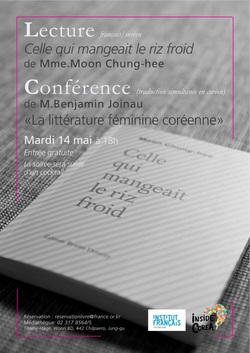 I am presenting my lecture about the Image of women in Korean literature in Seoul, this time at the French Institute, before a reading of poetry by Moon Chung-hee. Organised by Inside Corea. Voici la conférence que j'ai proposée sur la femme dans la littérature coréenne au Centre culturel coréen de Paris le 27 mars 2013. http://youtu.be/x2CdmrWOoDM La BULAC a le plaisir de vous inviter à sa prochaine manifestation qui a lieu dans le cadre des "Rencontres autour du livre": Littérature féminine en Corée du Sud : modernité(s) et changement social Le jeudi 4 avril 2013, de 18h30 à 20h Auditorium Benjamin Joinau animera la rencontre en explorant cette question sur un plan thématique puis chronologique. Jean-Claude de Crescenzo abordera la question des nouvelles esthétiques et et des nouvelles directions prises par la littérature coréenne sous l'impulsion des femmes, et notamment de la jeune génération littéraire. Bruno Doucey qui a publié en novembre dernier Celle qui mangeait le riz froid, un recueil de poèmes de Moon Chung-hee, traduit en français par Kim Hyun-Ja, présentera son travail en présence de l'auteure et de sa traductrice. Moon Chung-hee reviendra sur ces nouvelles écritures et parlera de son propre travail. [En savoir plus] Auditorium du Pôle des langues et civilisations 65, rue des Grands Moulins 75013 Paris Métro Bibliothèque François-Mitterrand Mission action culturelle Tél : 01 81 69 18 38 / 18 86 action-culturelle(à)bulac.fr
MARS-AVRIL 2013
Conférences de Benjamin Joinau 1) CENTRE CULTUREL CORÉEN, PARIS Mercredi 27 mars, 18 h 30 La femme dans la littérature coréenne En savoir plus 2) ACSC, UNIVERSITE DE LA ROCHELLE Jeudi 28 mars, 14h30 L'imaginaire de l'Autre dans le cinéma sud-coréen de la Sunshine Policy (1998-2008) En savoir plus 3) BULAC, PARIS Jeudi 4 avril, 18h30 Rencontre autour de la littérature féminine en Corée du Sud : modernité(s) et changement social. En savoir plus 4) EHESS, MAISON DE L'ASIE, PARIS Vendredi 5 avril, 14h Welcome to... Korea? L'imaginaire de l'Autre dans le cinéma sud-coréen de la Sunshine Policy (1998-2008) En savoir plus |
Benjamin Joinau's
Texts - Articles - Books - Presentations - Lectures - etc. Catégories
Tous
|
||||||
MESMOTSMESMONDES
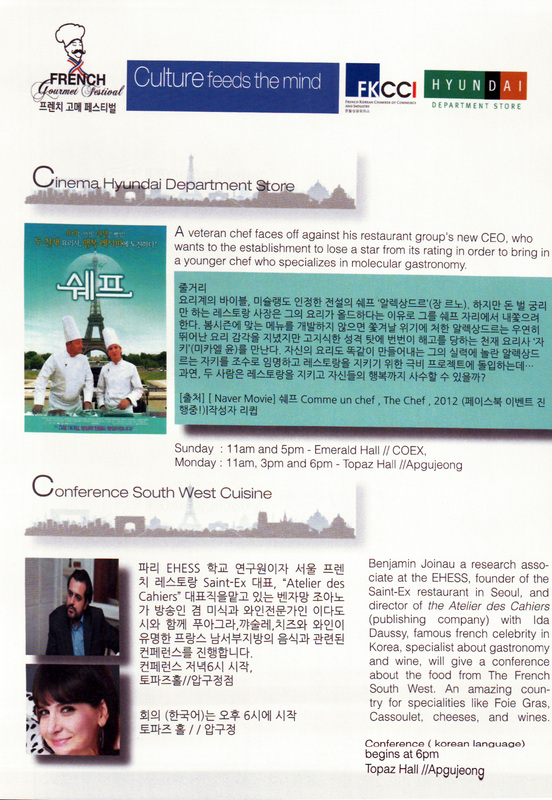
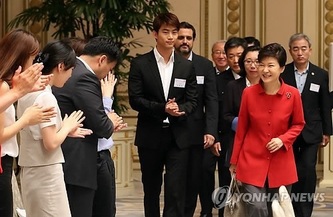
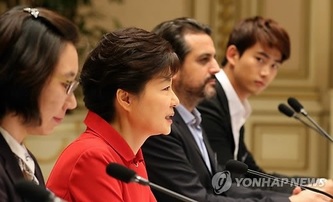
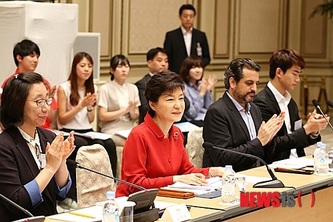
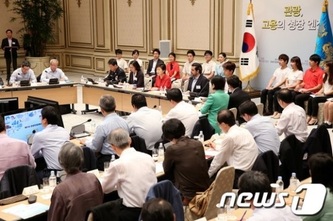
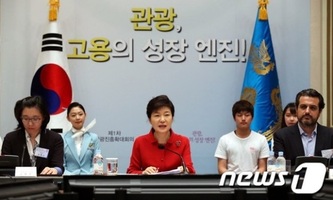
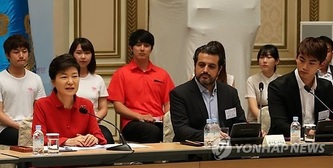
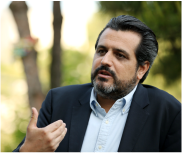
 Flux RSS
Flux RSS
